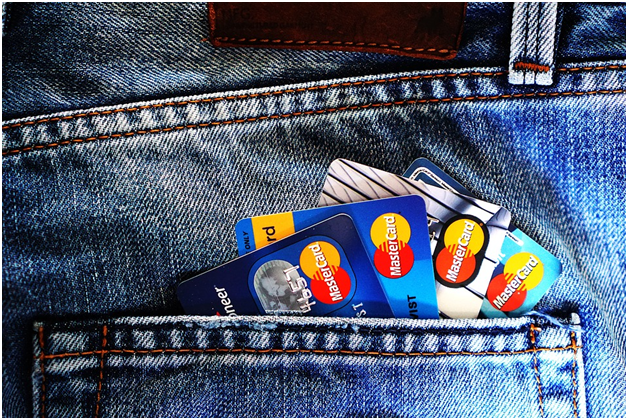How many envelopes in the mail, ads on TV and pop-ups online do you see with the teaser “0% Interest for 6 Months”? My mom always told me that if it sounds too good to be true, it probably is. And, unfortunately, when it comes to America’s favorite type of plastic, there really are some catches to the zero-percent APR credit card scheme.
1. Tiny Interest Rates Might Mean Hefty Annual Fees
The APR of a credit card is only one of the many ways credit card companies generate huge revenues. In 2014 AmericanExpress brought in $36 billion, while Visa and MasterCard generated $22 billion. If these companies are directly, or indirectly providing consumers with zero-percent interest teaser rates, where are they making their money?
Zero-percent interest doesn’t make a credit card totally free to use. The average credit card fee in America is $58. That means that paying your bill on time and in full each month will definitely cut down on interest costs, but you’re still paying close to $60 every year just to use your own money.
2. The Penalty APR is INSANE!
Signing on the dotted line and taking advantage of zero percent interest, even if it’s just for a little while, sounds like a smart financial move, right? If you’re a perfect human being (I have yet to come across one) then you’re right, there’s very little chance that you’ll make a mistake and trigger a fee or high-interest charges.
But, if you’re like the rest of us humans just trying to soldier on and do the best we can, there’s a very high-risk that you’ll trigger some colossal fees. The fine print in your cardholder agreement will outline the late fees, penalties and APR that applies to purchases after the teaser rate expires.
To be honest, I’m not a big fan of credit card balance transfers, a couple of my friends have been ravaged by unexpected fees. It’s easy to lose track of time, and before you know it, interest starts to pile up. Take the time necessary to understand the terms and conditions associated with your teaser rate. Missing a payment or pay-off deadline can be extremely expensive.
Instead of playing the balance transfer game, gain total freedom from crushing debt by consulting a debt professional. You’ll gain a competent strategy for quickly resolving your financial challenges.
3. Promotional Financing from Retailers can Be Expensive
Oh, and those of you that use store-branded credit cards (Best Buy, Macy’s, etc.) to take advantage of promotional financing need to pay extra close attention to when the promotional period expires. In the event that you fail to pay off the entire balance of your purchase during the interest-free financing period, your statement balance will balloon up overnight.
When the promotion on your credit card expires, the card issuer will backdate the interest owed to the date of purchase. Most consumers sign up for a store charge card because they want to take advantage of the promotion, often failing to ever read the terms of the cardholder agreement. Interest rates in excess of 22% are not uncommon.
4. Credit Card Payment Terms
The way that a credit card company applies payments to your credit card account is important. Everyone knows that you’re required to pay a minimum balance payment each month. But, some customers prefer to make multiple payments throughout the month. I’ve done this before in order to ensure my balance remained at zero (I hate paying interest!).
But, there’s a trick that some credit card companies use to generate additional late-fees, even though you might be paying off your bill each month. Take a look at the cut-off date for payments. Depending on the date you make your payment, it might be credited to a previous statement, instead of the current one. You could assume incorrectly that you’ve made your required minimum payment, but you need to make sure it’s applied to the correct monthly statement.
This can get confusing to understand, so it’s always best to refer to your cardholder agreement. If you run into difficulty, you can always call your card issuer and request a breakdown on how your payments are applied.
5. “Up To” is very different from “Through”
When listening to a credit card company advertise an introductory rate in their ad, you’ll likely here the term “up to X number of months”. Some credit card companies tailor their interest-free period to each individual cardholder. Even though you’re signing up for a card based on an introductory interest-free period, it’s important to check the actual introductory term in your agreement when you receive your credit card.
It’s possible that your introductory period could be shorter than was was advertised. In the war of advertisements versus cardholder agreements, the black and white print always wins. And this is doubly true for the promises that the representatives make when they convince you to sign up for a card. Always, always check the fine print.
Cleaning Up the Mess from Unexpected Fees and Sky-High Interest
Zero-interest introductory rate credit cards can be great tools, allowing you to focus your entire monthly payment on the principal balance, but things can go from bad to worse very quickly. Getting slammed with unexpected credit card fees, penalties and backdated interest can lead to financial difficulty. We all want to live without debt, but it’s just too easy for the payment lifestyle to become a habit. High credit card balances, sometimes caused by these fees, puts stress on a marriage and digs consumers a hole that can take years to get out of.
Debt relief agencies have become almost as popular as credit cards in America. These agencies are experts in providing a pathway out of crushing debt. Their services assist clients in avoiding bankruptcy and establishing responsible financial habits. It’s important to face the challenges of crushing debt head-on and early. Sticking your head in the sand and hoping your debt snowball will magically melt away is dangerous. Instead, find a qualified debt professional to discuss your options for paying off, consolidating or eliminating your debt.
By fully understanding the terms of your credit cards, you’ll be in a stronger position to avoid the stress of unmanageable debt. Read carefully, and create an alert in your calendar for when the introductory period expires.










































